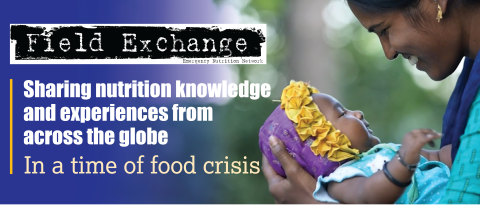Hot weather impacts infant feeding practices in low- and middle-income countries
This is a summary of the following report: Edney JM, Kovats S, Filippi V et al (2022) A systematic review of hot weather impacts on infant feeding practices in low- and middle-income countries. Frontiers in Pediatrics, 10, 930348. https://doi.org/10.3389/fped.2022.930348
Due to concern that increased hot weather led to a rise in supplemental feeding rates due to infants requiring additonal fluids or the perception that infants are dehydrated, the authors conducted a systematic review of published studies to understand how hot weather conditions may impact infant feeding practices. They first reviewed evidence to consider whether exclusively breastfed infants could maintain hydration levels under hot weather conditions, assessing indicators of infant hydration such as urine concentration measures, total fluid intake or infant weight changes. They then examined the available literature on infant feeding practices in hot weather.
The 18 studies that met the inclusion criteria after they were assessed according to predetermined quality checklists showed no evidence that exclusively breastfed infants required additional water or other liquids. The authors found that exclusively breastfed infants maintain normal hydration levels without concentrating urine to maximal levels. Supplementary water also does not appear necessary for exclusively breastfed infants that are low birthweight or born near-term.
The authors describe multiple potential pathways by which hot temperatures and weather may influence infant feeding practices, including fear of infant dehydration and the belief that infants require water and/or other liquids alongside breastmilk in hot weather or seasons. Other factors that are highly seasonal and/or weather-dependent, and which could be associated with reduced time spent breastfeeding, include demands on a woman’s time (work or childcare); the infant’s season of birth, which modifies the mother’s experience of social support and infant feeding practices; school holidays taking place during hot, dry months and placing more childcare responsibilities on breastfeeding mothers; and periods of higher prevalence of diarrhoeal disease, when women are less inclined to supplement breastfeeding for fear of giving infants contaminated water. In some settings, healthcare providers and relatives continue to advise water supplementation in hot weather or during the warm seasons.
Increased rates of exclusive breastfeeding could significantly improve infant survival in low- and middle-income countries. The authors conclude that, overall, there is evidence to support the WHO and UNICEF guidelines recommending that healthy infants should be fed exclusively with breastmilk, regardless of weather conditions. However, they still call for further research in countries bearing the brunt of climate change. Families and healthcare providers should be advised that exclusive breastfeeding is recommended even in hot conditions.


